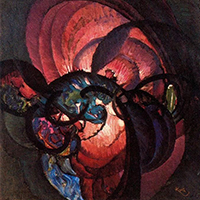Defense mechanisms in adolescents at high risk of developing psychosis: An empirical investigation

All claims expressed in this article are solely those of the authors and do not necessarily represent those of their affiliated organizations, or those of the publisher, the editors and the reviewers. Any product that may be evaluated in this article or claim that may be made by its manufacturer is not guaranteed or endorsed by the publisher.
Accepted: 2 April 2020
Authors
Research within psychotherapy and psychopathology frameworks has been inspired by the central concept of defense mechanisms, which play a pivotal role in psychoanalysis. Defense specificities have only recently been studied systematically in the context of several clinical diagnoses. The present study aimed to explore the specificities of defense mechanisms in adolescents at ultra-high risk of developing psychosis and test the relationship between defensive functioning and attenuated psychotic symptoms. Twenty-six adolescent inpatients at ultra-high risk of developing psychosis and a matched clinical control group of inpatients not at risk of psychosis were interviewed. Two observer-rater methods, the Defense Mechanism Rating Scales and the Psychotic-Defense Mechanism Rating Scales were applied to interview transcripts to assess the individual use of defenses. Ultra-high-risk patients demonstrated lower defense mechanisms (i.e., total instances of defense mechanisms observed) and lower overall adaptiveness of the defenses presented. When specific differences between groups were observed, psychotic defenses were the sole defenses that could partially discriminate between ultra-high-risk and not at-risk patients. Regarding the relationship between defense mechanisms and subthreshold psychotic symptoms, psychotic defenses were associated with negative and disorganization symptoms, rather than with positive symptoms. The psychological vulnerability of ultra-high-risk patients is discussed and treatment implications for psychotherapy with such challenging patients are addressed.






